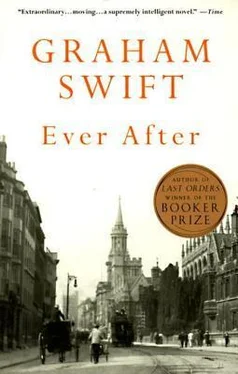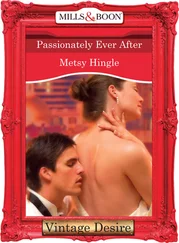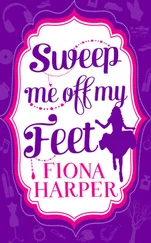(Didn’t his dream come true in my life?)
But scarcely was he married than she gave up her career. And he was left clutching the rags of his dream, her abandoned stage robes, not knowing — so he would discover — how to deal with her naked yet somehow less graspable self.
I think I knew her, in some ways, better than he did. I think I was closer to her than he ever was. I remember, for instance, one afternoon in the autumn of what must have been either ’43 or ’44. He is away on one of his mysterious trips, and she, in defiance of the black-out regulations and with my collusion, is tending a bonfire. There is the usual pile of dead leaves and garden debris, but on top of this she is strewing — and I am helping her — so-called “rubbish”: papers, files, letters.
I only guessed later what she was doing. She had decided that the time had come to dispose of all that “junk” of Uncle Ratty’s that had come to her via her brother and which her brother had never had time to sort out for himself. All that research. All that evidence . All that burrowing after noble origins. And in amongst the junk there might so easily have been the disregarded notebooks of Matthew Pearce of Burlford — who knows if some other, unknown manuscript was not casually cremated that afternoon? With my own ignorant hands I might have tossed Matthew on to the pyre.
I don’t remember her showing any special emotion, only her evident pleasure in what she called a “jolly good bonfire, sweetie.” She wore for this occasion — but this was typical of her — not some sloppy gardening outfit, but an ensemble much more chic than practical: sleek, well-cut trousers, which at that time must have been a matter of fashionable novelty; a figure-hugging, collared jersey, with a Paisley silk scarf; all of which would have looked well at the best golf club. While she wielded the rake and struggled with branches, this gave her the appearance of being skittishly feminine, sillily, fetchingly out of her element, so that any male passer-by (though we were alone and at the end of the garden) would have felt compelled to say, “Here, let me,” taking the rake from her; and my mother would have stepped back in blinking, coquettish satisfaction.…
The memory of the smooth pear-shape of her waist and bottom, which her trousers calculatedly set off; the memory of our faces glowing greasily and mischievously while the sparks danced and a blackbird tink-tinked indefatigably in the beech hedge; the memory of her, on a sudden whim and without explaining, going into the house and returning, through the thickening twilight, having raided my father’s special reserves, with two glasses, one, filled only partially, for me; of her raising her glass to catch the full rubescence before the fire, then bidding me, with a wink, sip with her. My first taste of wine. “Chambertin, darling — divine.” My mother: Sylvia Unwin, née Rawlinson. I don’t believe my father ever communed with her more intimately than this.
I see her, in the gathering dark, rake the embers of Uncle Rupert’s dreams. And I hear her, as she steps back, grasping the rake like a spear, and as the blackbird in the hedge at last admits defeat, begin to sing:
“Who is Sil-via …?”
• • •
She lay in that rufous, glowing light, and the wipe-clean clipboard lay untouched beside her. I realised she was too weak to use it. If she had wanted to use it, I would have needed to guide her hand. I will never know what she might have said. But surely while she still had her voice she would have said all she meant to say. Or written one last letter … I will never know how much she felt the agony of willing words but having no means to utter them. I will never know if, to her, the words and all the resources of her voice still seemed to be there , as they say amputees still sense their absent limbs. Fish are mute when they tumble into the net. Perhaps the near-to-death (but I should know this) have already retreated a long way into themselves. They cannot waste their energies on those strange irrelevancies the living, on all those wearying transactions that happen on the surface of things. They can do without words. Perhaps my mother’s silence was golden.
I held her hand, which could only muster a faint returning grip. If I had not known this was my mother, I would scarcely have recognised her. All the cheerful plumpness she had gained in middle age had gone. She was a bag of bones. Her eyes, little trapped pools in their sunken sockets, seemed the only living things about her. They looked at me, over the wall of her speechlessness, and I could not tell what their infinitesimal glints and dilations meant. Apology? That I should have to witness her in this state? Or just apology? Defiance? Yet it seemed to me that whatever those eyes expressed, they were looking, intensely, at me , they saw me clearly; they were looking into me, assessing, questioning.
There was this sound of tennis balls. She lay with her thin arms above the covers, and her head in the peculiar, chin-jutting pose necessitated by all the scaffolding beneath her jaw. I will never know if that air of queenly serenity was a trick of that enforced posture and the drugs circulating through her, but I like to think of it as her genuine state of being. The curtains stirred, allowing a fuller beam of sunlight momentarily to penetrate the room, and she smiled, faintly but distinctly, the way a child smiles at some simple distraction. So she was not that far within herself. But as I bent towards her — it seemed to me that in order to speak to her, I had to whisper almost directly into her ear, otherwise she would not have heard — her eyelids slowly closed. I knew this was not death — she lasted almost another twelve hours. I knew her eyes would open again, for Sam. But I knew she was saying, after her last smile to me, Go. Goodbye.
I kissed her brow. Whispered my own goodbye. I left the room like a tiptoeing parent at bedtime. I felt perfectly calm, as if I were doing something familiar and routine. Immunized? Perhaps. Along the corridor, I found Sam, all alone, in the waiting room. The look of terror on his face focused for a moment into a sort of searching expression that was an echo of hers, then dissolved into bewilderment. He might have been going to his own death. I squeezed his arm. But our little change of sentry duty was conducted, fittingly perhaps, without any exchange of words.
I went out immediately into the park. Into this Indian-summer balm, this land of the living. The air was almost completely still; only an occasional breeze stirred the trees, as it had stirred my mother’s curtains. The sun was low and rich and everything under its touch — the midges whirling under the trees, the veins of leaves, the mica in the path — appeared specially illuminated. People’s voices sounded slow and hushed.
It seemed important that I should track down the tennis game, and I followed the sound of the balls, which, strange to say, was harder to make out at ground level. There were only two courts beside each other, in their tall, wire cage, and only one of them was occupied. A young couple were playing. As I approached they stopped, and I thought for an anxious moment they had finished and were about to leave. But they were only changing ends. The girl’s legs were slender and tanned. As they passed at the net, they paused to fondle and kiss, and it seemed again to hang in doubt whether they would continue their game or not. But then they walked to their respective ends — the whole court was bathed in the rays of the sinking sun — and then the reassuring, inconsequential sound of the balls began once more.
There are three things which have complicated my presence in this place and made me the subject of prying attention as well as recrimination among my fellow collegiates — setting aside, that is, the principal fact that my presence here is a joke. I am speaking now of the period before my recent botched brush with death. It is too early to say, except in practical terms, how this will have affected my general status. The business of Sam’s death, which should, I suppose, be called complication number four, has not helped. I sense outrage modified by pity. Not a sweet combination. But then they do not know that I have changed.…
Читать дальше












